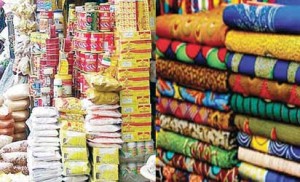
In its continued effort at boosting the creative economy, Nigeria’s developmental financial institution, Bank of Industry (BoI) organized a two-day masterclass for fashion designers in Lagos and Abuja on February 8 and February 10 respectively.
The sessions were helmed by famous international fashion strategy and brand development expert, Mercedes Gonzalez, who was brought in by the bank to help sharpen the skills of Nigerian entrepreneurs operating in the various segments of the fashion value chain.
At the Abuja segment of the event which held at the Transcorp Hilton Hotel, top fashion designers who attended the session were excited to interact with Gonzalez, Managing Director, Global Purchasing, who urged them to target the international market.
She said, “In the U.S., consumers are moving away from mass production of cloth lines. People want something that is crafted, well made and limited in production. Some of you don’t value your product, probably because of your environment.
“Understanding the value is what the industry has to appreciate. A lot of designers are big fish in a little pond but they need to start thinking about the bigger picture.
The Masterclass by Gonzalez was preceded with an exhibition of some of the best wares by Nigerian fashion designers such as dresses, beads, hats, shoes and other gorgeous fashion items. The event was attended by different fashion icons and graced by dignitaries including the Minister of State for Trade and Investment, Aisha Ibrahim and President of Fashion Designers Association of Nigeria (FADAN), Mrs Funmi Ajila-Ladipo.
It was a cheering news to many when Acting Managing Director, Bank of Industry, Waheed Olagunju announced that the bank is willing to increase funding to the cotton, textile and apparel industry from the existing N1 billion fashion fund.
He noted that the effort was part of moves to diversify the economy and promote self-reliance rather than continuous importation of textiles.
“This training is designed to sharpen their skills to make them competitive and produce high quality apparels in the international market. One of the parameters of measuring countries is if they are self-reliant,” said Olagunju.
According to the BoI boss, “Clothing is one of the basic needs of man. We have been importing clothes for the past 40 years before the oil boom. So what we are doing is to ensure increasingly, we wear what we produce; that’s by way of import substitution.”
In terms of exports, Olagunju advocated need for the textile industries to penetrate international markets, stressing the huge diaspora population market interested in the Nigerian fabrics.
Olagunju added that non-Nigerians crave for these fabrics but local entrepreneurs were unable to meet the market demand.
He cited an instance of U.S. firm which promoted $100 billion apparel opportunity in 2015; African countries exported textiles worth $1 billion, Bangladesh exported $5 billion worth of apparels but Nigeria could not make any impact.
To avoid a repeat, he said, “Mercedes is here to sharpen the skills of Nigerian entrepreneurs and help connect them to international markets to sell local fabrics more internationally particularly in the U.S.
“Our entrepreneurs are under-marketing themselves. Most of their products can be exhibited internationally. They are of export quality and very cheap. So once you undergo this kind of training, you are de-risked. We have N1 billion fashion fund which we are willing to increase as demand also increases.”
The event was organized in partnership with Ministry of Industry, Trade and Investments, as an intervention in the fledgling fashion industry which is considered a remedy for the current economic recession.
Copyright Ships & Ports Ltd. Permission to use quotations from this article is granted subject to appropriate credit given to www.shipsandports.com.ng as the source.
